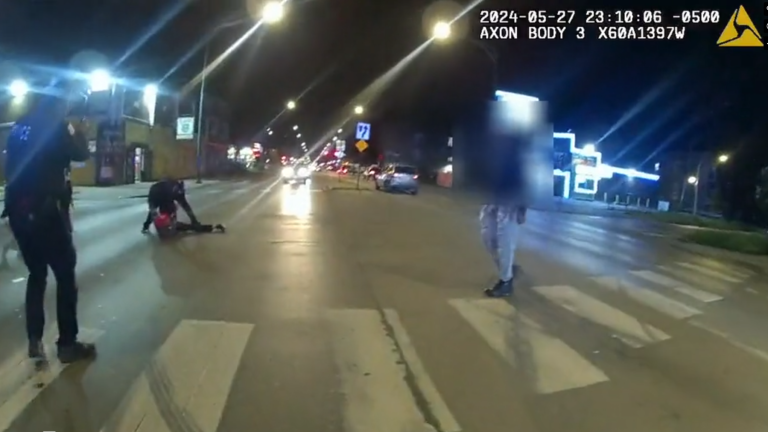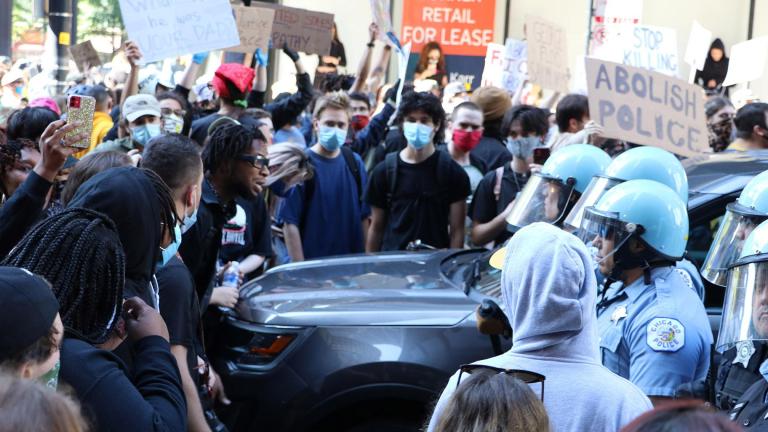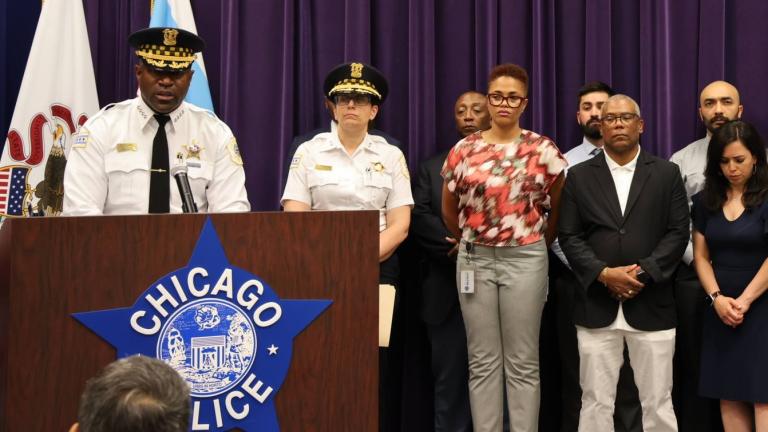 (WTTW News)
(WTTW News)
The Illinois Supreme Court has rejected a request from the Chicago branch of the Fraternal Order of Police to destroy thousands of officer complaint records that are at least five years old.
The case stems from a yearslong battle between the city of Chicago and the FOP, which has argued that its collective bargaining agreement requires that these complaint files be destroyed after five years.
But six of the seven Illinois Supreme Court justices voted in the city’s favor, finding that this single collective bargaining agreement provision should not overrule the state’s Local Records Act, which holds that these and other public records “shall not be mutilated, destroyed, transferred, removed or otherwise damaged or disposed of” without proper permission.
“While parties are generally free to make their own contracts, this court has long held that when a conflict exists between a contract provision and state law, as it clearly does in this case, state law prevails,” Justice Lloyd Karmeier wrote in the majority opinion.
Thus, the court found, the provision “violates explicit state law.”
The files at the heart of this matter include complaint register files produced during investigations by both the Civilian Office of Police Accountability and the CPD’s Bureau of Internal Affairs into alleged misconduct by officers.
FOP attorney Brian Hlavin said during oral arguments in this case back in March, that the city is “highlighting the worst of the worst” in terms of these misconduct records. But he said there’s actually more than 50 rule violations officers can commit which would generate these same types of records.
“Some of them are the more serious allegations that are talked about – with excessive force, civil rights violations or criminal conduct,” he said. “But you also have uniform violations, you have attendance violations, you have issues involving officers working secondary employment … you have just general day-to-day employment matters that police officers have just like any other employee of the state.”
But for officers, Hlavin said, records pertaining to any of these issues all fall under the same umbrella. He said the city should instead be asked to consider which of these records deal with “severe misconduct” and separate those from routine employment matters.
Attorneys for the city countered that the Local Records Act requires the proper maintenance and prohibits the destruction of important public records without first getting approval from the Local Records Commission.
I applaud the Illinois Supreme Court for ruling against the @FOP7Chicago's efforts to destroy all disciplinary records of complaints against police officers that are more than five years old.
— Mayor Lori Lightfoot (@chicagosmayor) June 18, 2020
Asked about the case Thursday morning, Mayor Lori Lightfoot called the court’s ruling “entirely the right decision.”
“For way too long we have not been as transparent as we need to be in this city,” she said. “We have to have accountability and legitimacy, and that can’t come if we hide from the public documents that underscore what has happened with disciplinary investigations and records in our city.”
Chicago FOP President John Catanzara said he“couldn’t be more disappointed” with the ruling, according to the Chicago Tribune, adding that he’s asking the union’s legal team to find a way to bring the case to the U.S. Supreme Court.
This case has played out over the course of several years. The FOP filed grievances over the city’s failure to destroy these records back in 2011 and 2012, and an arbitrator eventually agreed in 2016, ruling that the city had violated the collective bargaining agreement.
The city later appealed that ruling, and lower courts agreed with their position, which led to the FOP taking its own appeal to the Supreme Court.
In a dissenting opinion included in Thursday’s ruling, Justice Thomas Kilbride wrote that his issue with the majority had nothing to do with the records themselves. Rather, he said the arbitrator’s 2016 decision only instructed the two sides to continue negotiating – it did not, he said, mandate that these records be destroyed.
While he felt the two sides should abide by the arbitrator’s ruling, Kilbride did add that he does not “advocate the indiscriminate destruction of police misconduct records.”
“Nor do I minimize the seriousness of police misconduct,” he wrote. “Public safety and effective law enforcement are of utmost importance.”
Contact Matt Masterson: @ByMattMasterson | [email protected] | (773) 509-5431







